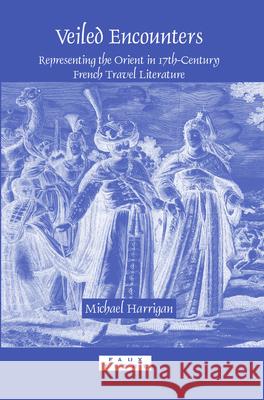Veiled Encounters : Representing the Orient in 17th-Century French Travel Literature » książka
Veiled Encounters : Representing the Orient in 17th-Century French Travel Literature
ISBN-13: 9789042024762 / Angielski / Miękka / 2008 / 299 str.
Travel narratives were the principal source of knowledge about the lands of the Near East and the Indian Ocean Basin in 17th-century France. Claiming the authority of first-hand observation, they paradoxically rely for their legitimization on the tropes of an established literary tradition. The status of these texts remained ambiguous, not least because of their anecdotal depictions of great riches, brutality or sexual promise. Drawing on the insights of post-colonial scholarship, this study tackles a question given scant attention in previous work and suggests that beyond the hazy representation of the Orient, an opposition emerges between the threatening Near East and the indolent East Indies. Distinguishing recognizable representations from those generated by new encounters, this book questions the feasibility of cultural representation through travel, exploring a large corpus of original sources written by French ecclesiastics, gentlemen-travellers, ambassadors and adventurers. Linguistic, religious, cultural or geographical barriers meant most travellers remained distanced from the peoples about whom they would simultaneously become authoritative. The encounter was further transformed in narratives that were intended to entertain and to satisfy the criterion of curiosite. The 'Oriental' that emerges is a supremely variable entity, alternately naked or veiled, barbaric or civilized, menacing or attractive.











